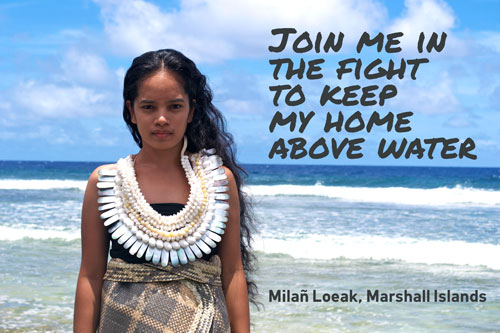New Zealand’s Climate Change Target – make a submission by June 3rd and have your voice heard!
In December 2015, countries will meet in Paris to establish a new international climate change agreement under the United Nations Framework Convention on Climate Change. All countries have been asked to put forward a target to reduce emissions after 2020. The New Zealand Government is seeking your input as they decide on the contribution Aotearoa New Zealand will make.
The Waikato Environment Centre thinks that a fair contribution to the prevention of dangerous climate change would be for the government to adopt a minimum target of a 40% emissions reduction in net emissions below 1990 levels by 2030. This is the level of reduction in emissions that is necessary to prevent catastrophic climate change. The European Union has already indicated this level of commitment and we think that Aotearoa New Zealand can do the same.
The Waikato Environment Centre encourages you to tell the government how much you care about preventing dangerous Climate Change. Below is a submission that you can ‘cut and paste’ and email to climate.contribution@mfe.govt.nz
Thank you for joining us in calling for an emissions reduction target that we, and our future generations, will be proud of!
Submission to ‘cut and paste’
Dear Tim Groser (Minister for Climate Change Issues),
Thank you for this opportunity to make a submission regarding the New Zealand Government’s Climate Change target.
I call on the government of Aotearoa New Zealand to adopt a minimum target of a 40% emissions reduction in net domestic greenhouse gas emissions below 1990 levels by 2030.
I make this call for the following reasons:
• If human made greenhouse gas emissions continue at their current record-breaking rate, leading to a temperature rise of more than 4C by the end of the century, 16% of species, or one in six, face extinction. I don’t want this to happen.
• A large fraction of both terrestrial and freshwater species faces increased extinction risk under projected climate change during and beyond the 21st century. I don’t want this to happen.
• All around the Pacific, islanders are struggling to protect their land and livelihoods from encroaching seas and coastal erosion due to climate change. Their climate related challenges are likely to increase. I don’t want this to happen.
• Climate change will result in the loss of marine and coastal ecosystems, biodiversity, and the ecosystem goods, functions, and services they provide for coastal livelihoods worldwide. I don’t want this to happen.
• Climate change over the 21st century is projected to increase displacement of people (climate change refugees) who can no longer live where they are. I don’t want this to happen.
• Climate change increases the vulnerability of the world’s food supply. Food insecurity and the breakdown of food systems is linked to climate change induced warming, drought, flooding, and precipitation variability and extremes, particularly for poorer populations in urban and rural settings. I don’t want this to happen.
• People who are socially, economically, culturally, politically, institutionally, or otherwise marginalized are especially vulnerable to climate change. Climate change increases the vulnerability of poorer communities. I don’t want this to happen.
• Climate-related extremes, such as heat waves, droughts, floods, cyclones, and wildfires alter ecosystems, disrupt food production and damage infrastructure including critical services such as water supply, electricity and health and emergency services. These climate-related extremes kill people as well as negatively affect mental health and well-being, particularly for vulnerable populations. I don’t want this to happen.
• Climate change can indirectly increase risks of violent conflicts in the form of civil war and inter-group violence by amplifying well-documented drivers of these conflicts such as poverty and economic shocks. I don’t want this to happen.
New Zealand has met its current greenhouse gas emissions targets largely through the purchasing of reductions (carbon off-sets) while increasing our emissions at home (21% increase since 1990). I think there is more that we can and should do at home in Aotearoa New Zealand as part of a fair contribution.
The expense of not reducing our emissions is far greater, particularly for future generations, than the costs of reducing our emissions now.
There is a lot we can do now!
• We can diversify our land use practices to reduce methane gas emissions
• We can increase our investment in public transport
• We can upgrade and improve our rail system to allow for greater volumes of freight and passenger transportation
• We can improve our cycling and pedestrian infrastructure
• We can increase our native forest restoration, our afforestation of marginal hill country and our plantation forestry
• We can increase the proportion of electric vehicles.
• We can increase our renewable electricity generation to 100%.
• We can invest in research towards the development of new technologies that will reduce our emissions and our dependency on fossil fuels
Please adopt a minimum target of a 40% emissions reduction in net domestic greenhouse gas emissions below 1990 levels by 2030.
Yours sincerely,

